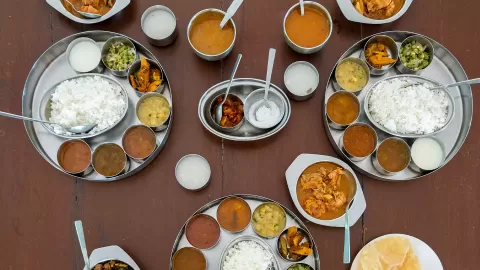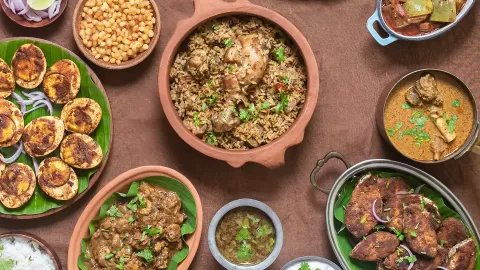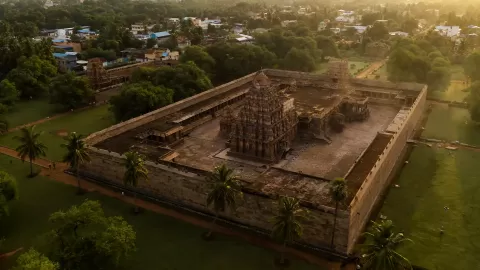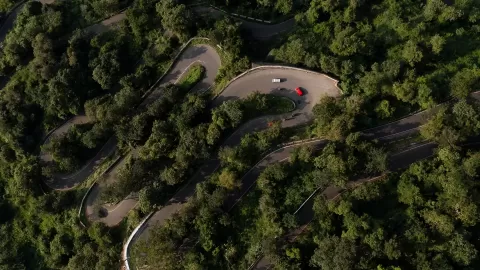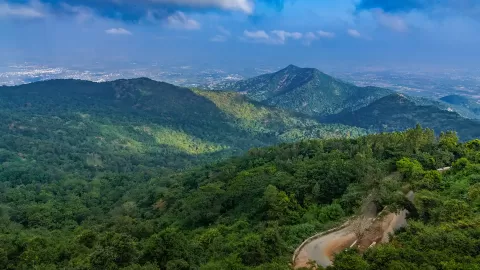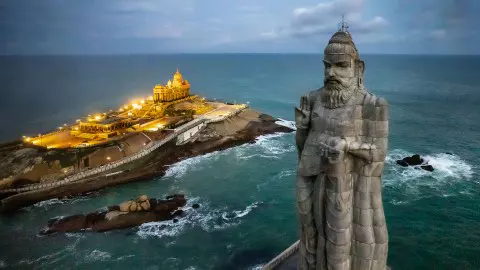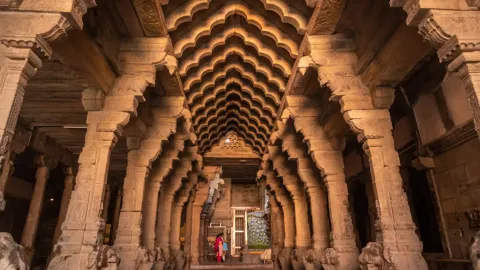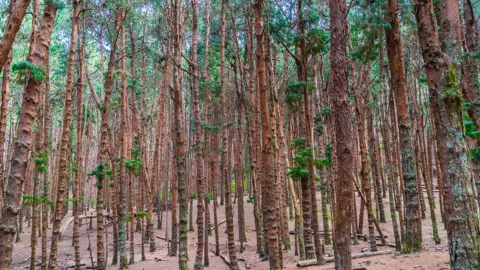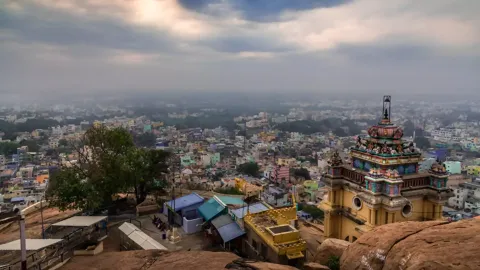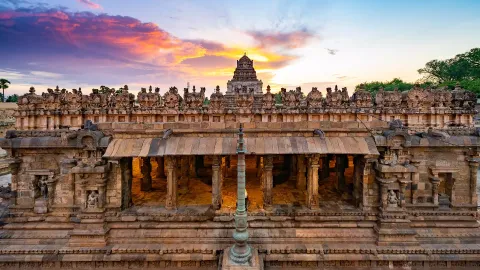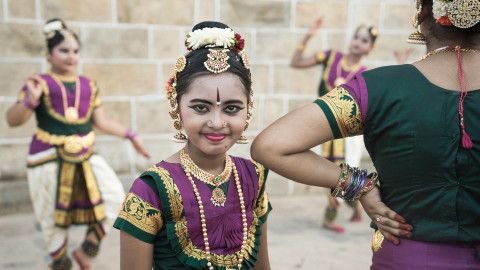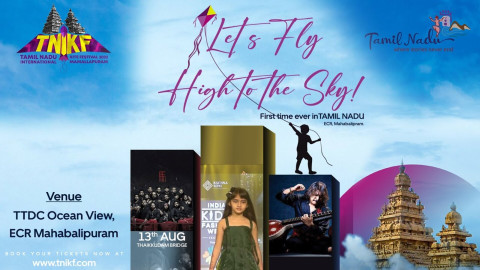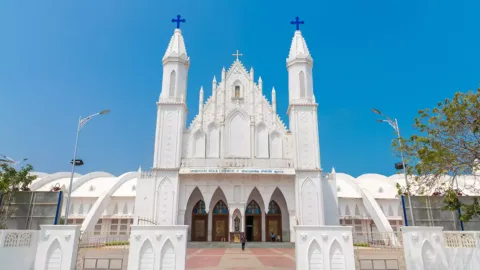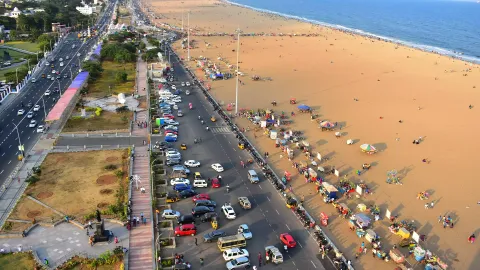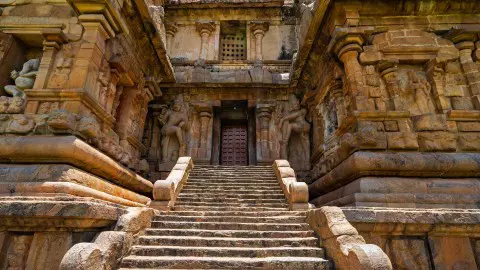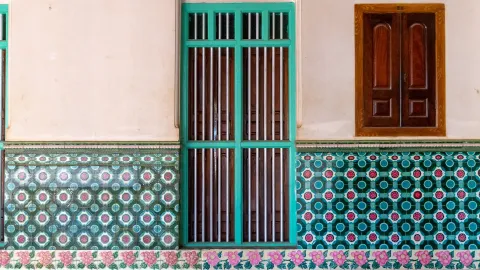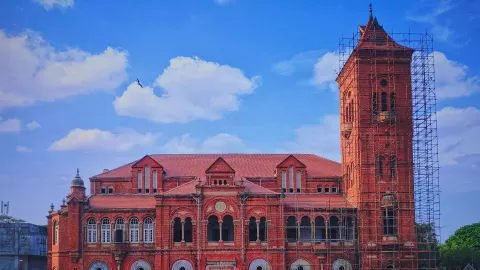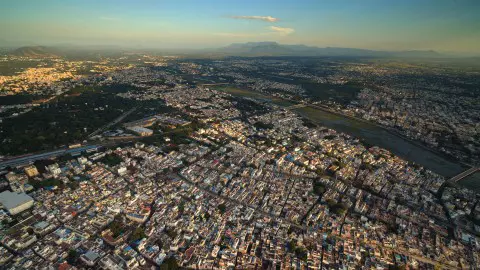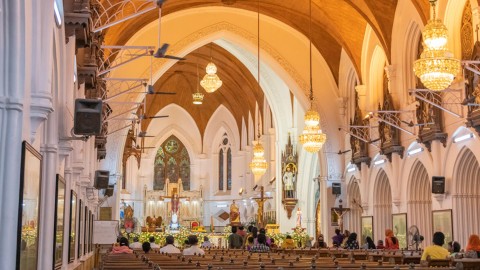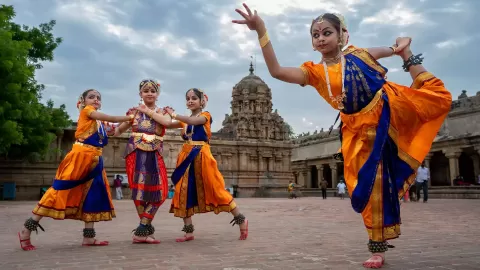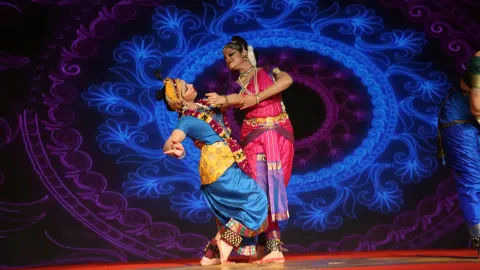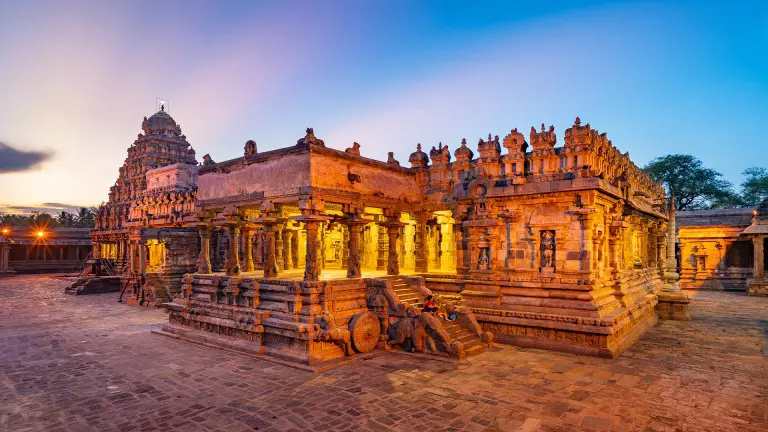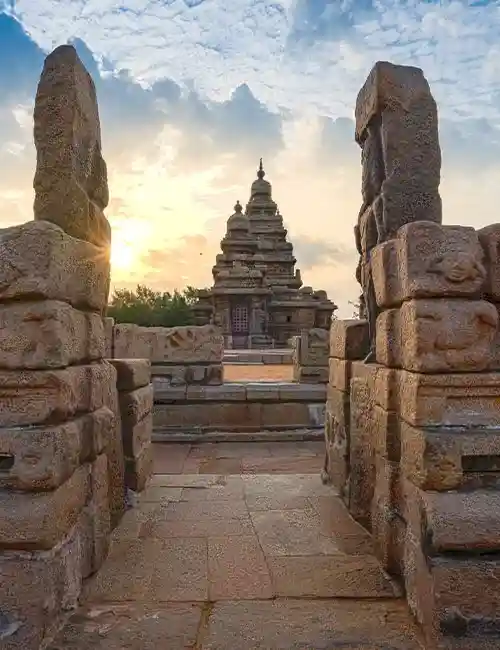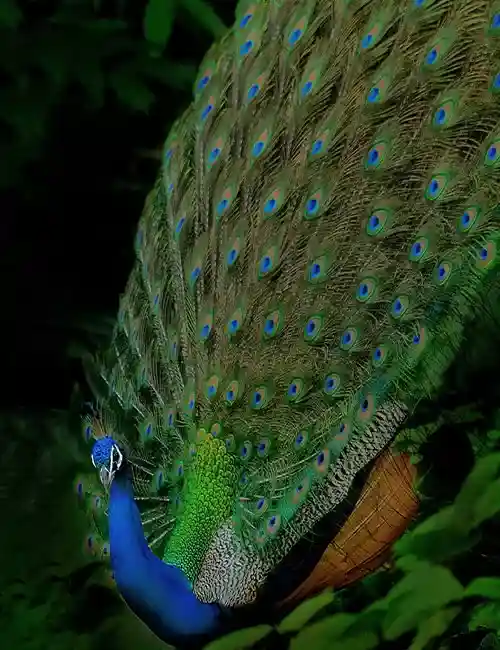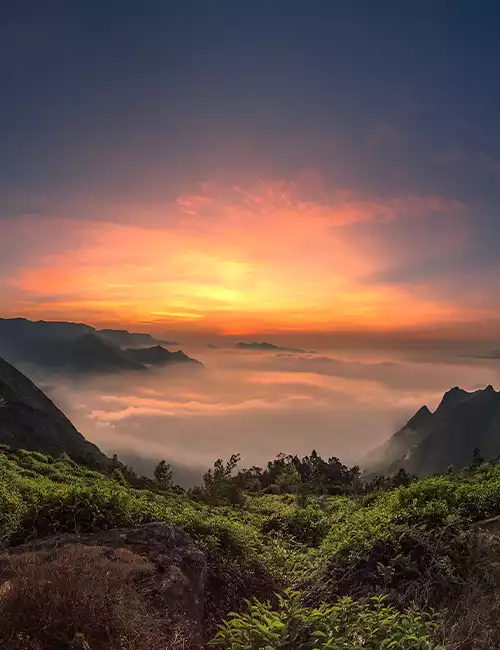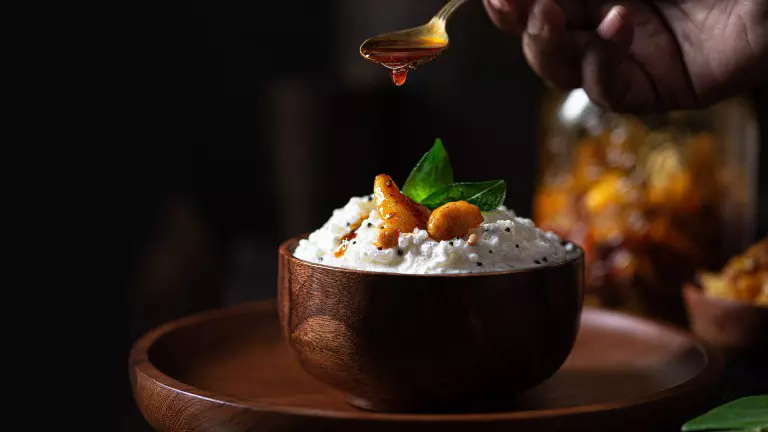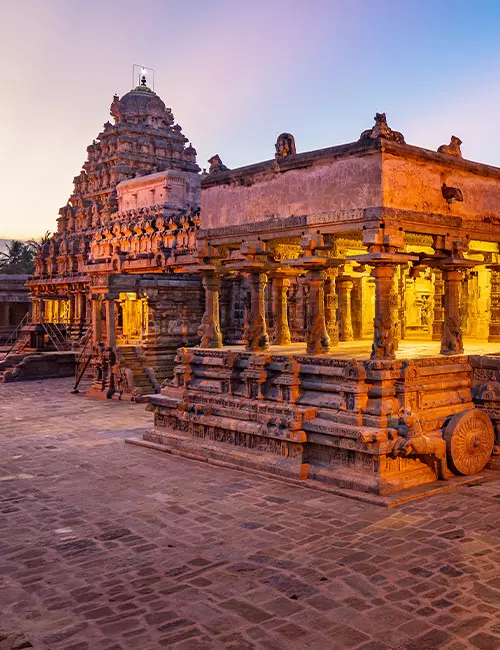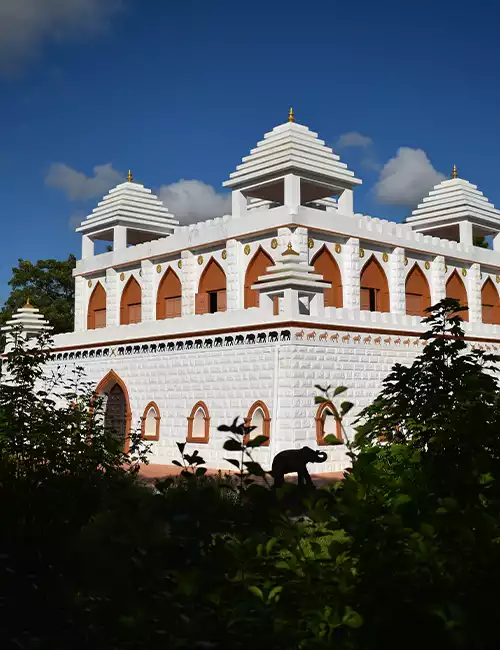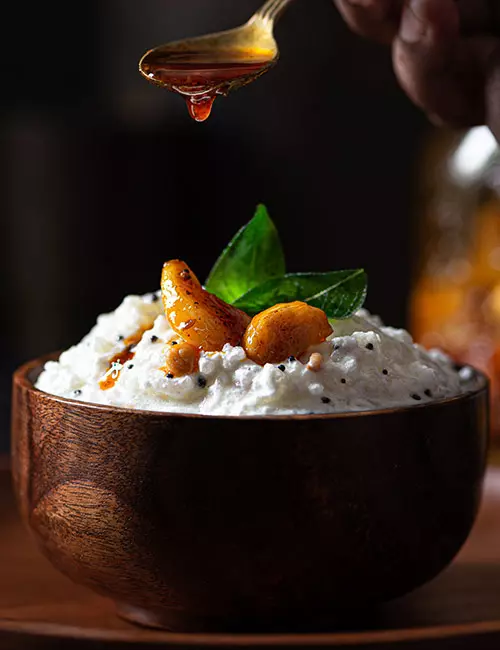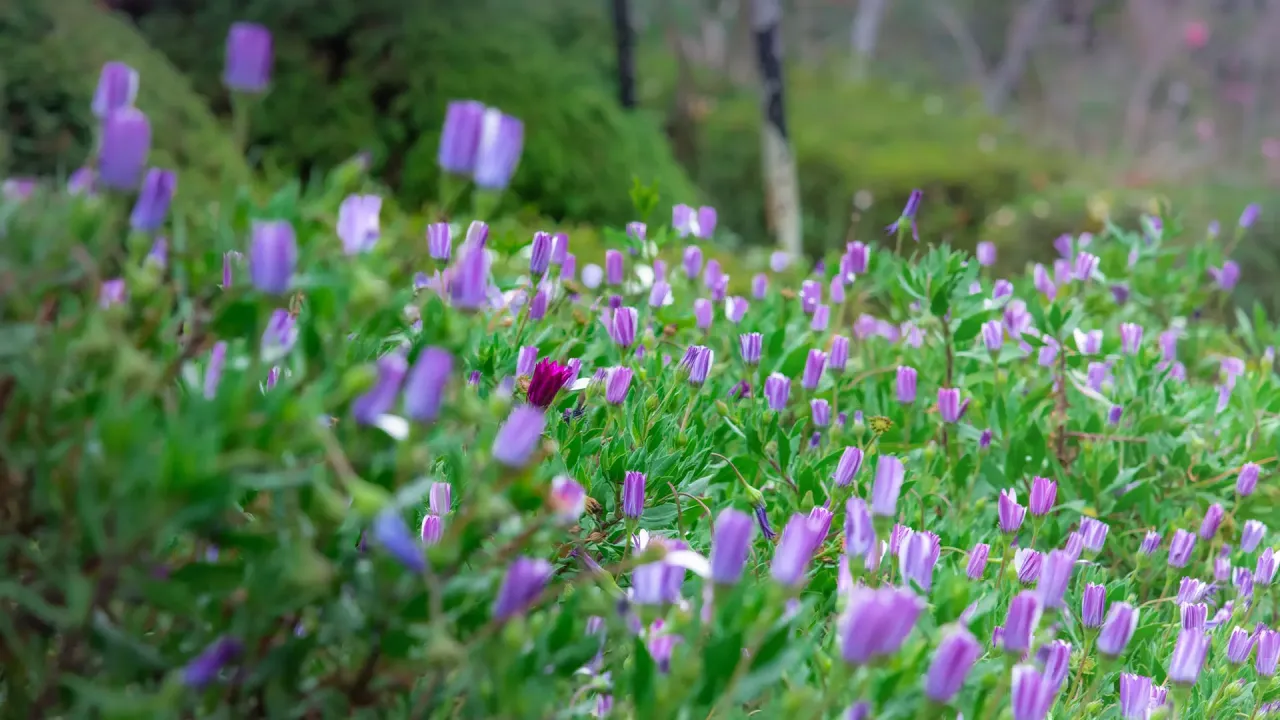
Replete with a unique history and heritage, nature and nuance, culture and cuisine are the town and district of Dindigul in Tamil Nadu. Part 9 of an Outlook Special on lesser-known tourist spots takes you on a tour of this unforgettable destination.
Majestic hills, magnificent fortresses and marvellous temples all add to the unsung magic of this small but stately town in Tamil Nadu – Dindigul. Surrounded by rich green hills, its landscape dominated by fortresses and temples that speak of its long history and heritage and the faith of its people, Dindigul is quite unique. Waterfalls dot the area, lush fields stand testament to its agricultural significance while swaying coconut palms wave a warm welcome to visitors.
From the history book
Several monuments stand testimony to Dindigul’s royal history dating back to the 7th century. During the reigns of Hyder Ali and Tipu Sultan, the city was an epicentre of cultural life. The 17th century Dindigul Fort, built by the Nayak kings, dominates the cityscape. Numerous places of worship - temples, mosques and churches – are another distinctive feature. The ancient Begambur Big Mosque is a shrine of historic significance. The Sri Kottai Mariamman Kovil, the Kasi Vishwanathan Temple and the Nadupatti Anjaneyar temple are significant Hindu shrines.
The famous Lord Muruga Dhandayuthapani Temple in Palani Hills is the third of the Six Abodes of Murugan. The idol of the Muruga here was created and consecrated by the sage Bogar from an amalgam of nine poisonous herbs or Navapashanam. As of 2016, this temple is the richest in Tamil Nadu.
The St. Joseph Church, a 19th century Roman Catholic structure, is testament to the religious multiplicity of Dindigul.
Nature’s own
Dindigul is blessed with natural beauty and charm. Nestled amidst lush green hills, the city offers mesmerizing views. The tranquil setting and scenic appeal of the Athoor Kamarajar Lake within the city, the dams in the area are all beautiful picnic spots. Dindigul city is also surrounded by serene hill stations, most well known among which is Kodaikanal, often referred to as the Princess of Hill Stations, with its long history as a retreat and tourist destination.
Food fiesta
Dindigul is famed for both its vegetarian and non-vegetarian food. Rice, vegetables and lentils spiced with aromatics are made rich with coconut water, rose water and coconut milk.
Most famous yet less known than it should be is the Dindigul Biriyani, earning Dindigul the sobriquet of “biriyani city”. Originating from the Muslim citizenry, the recipe was modified by the Telugu people. Initially, the biriyani was served only in local eateries, but today, a number of biriyani chains have established themselves as brand names all over Tamil Nadu. Coffee remains the most popular beverage with tea also being enjoyed.
Warp and weft
Woven into the life of this region is the famed Dindigul saree, made by skilled Saurashtrian weavers. Handwoven in both cotton and silk, these lightweight sarees with zari work are suitable for all occasions. The patterns are inspired by the grand temples of South India and display a perfect combination of beauty and strength. As of now, this weave awaits a Geographical Indication tag but is also widely marketed by weavers’ cooperative societies such as Co-optex. Dindigul district, especially Nilakkottai, is famous for metalworks, especially locks, brass utensils and jewellery.
Moving around and getting there
An efficient and affordable local transport system ensures ease of getting around.
By air: Madurai, the nearest airport, handles an average of 24 flights daily
By rail: Dindigul Junction handles about 100 trains daily.
By road: Dindigul is well connected by road to other important cities and towns.
Accommodation:
Hotel Tamil Nadu, Kodaikanal
No. 47, Fern Hills Road
Kodaikanal- 624101
Contact. No. 9176995824
For booking: www.ttdconline.com
Tamil Nadu Tourism: www.tamilnadutourism.tn.gov.in
Social Media: @tntourismoffcl
